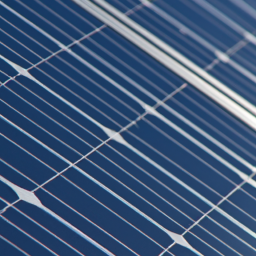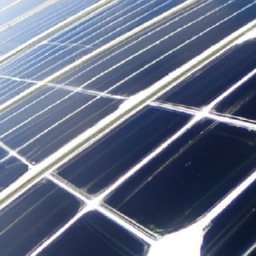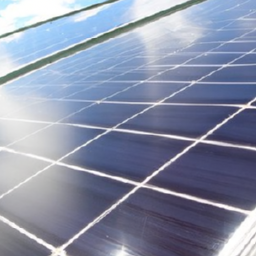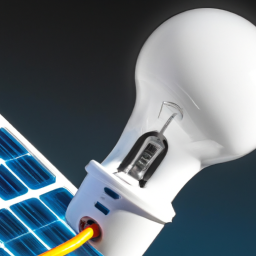Are you considering using a solar generator but unsure about the safety measures you need to take? Look no further! In this article, we will provide you with essential tips and precautions to ensure your safety while using a solar generator. From proper installation to maintenance and handling, we’ve got you covered. So, read on to learn how to make the most of your solar generator while keeping safety a top priority.
Understanding Solar Generators
Solar generators are devices that convert sunlight into electrical energy that can be used to power various appliances and devices. Unlike traditional generators that rely on fossil fuels, solar generators harness the power of the sun, making them a clean and renewable source of energy. These generators are becoming increasingly popular as people recognize the importance of reducing their carbon footprint and utilizing sustainable energy sources.
Defining Solar Generators
A solar generator consists of three main components: solar panels, a charge controller, and a battery. The solar panels are responsible for capturing sunlight and converting it into DC (direct current) electricity. The charge controller regulates the flow of energy from the solar panels to the battery, preventing overcharging and prolonging the battery’s lifespan. The battery stores the energy generated by the solar panels and allows for power to be used even when the sun isn’t shining.
How Solar Generators Work
Solar generators work by harnessing the power of the sun through photovoltaic (PV) panels. These panels are made up of interconnected solar cells that contain a semiconductor material, usually silicon. When sunlight hits the solar cells, it excites the electrons within the semiconductor, creating an electrical current. The charge controller then controls the flow of electricity to the battery, where it is stored for later use. From there, you can use the stored energy to power your appliances or devices.
Benefits of Using Solar Generators
There are numerous benefits to using solar generators. Firstly, they provide a clean and renewable source of energy, reducing dependence on fossil fuels and mitigating harmful carbon emissions. Solar generators are also quiet and produce no noise pollution, unlike traditional generators that can be noisy and disruptive. Additionally, solar generators require minimal maintenance, as there are no moving parts that can wear out or require regular servicing. This makes them a cost-effective and hassle-free option for those seeking an alternative power source.
Choosing the Right Solar Generator
When it comes to choosing the right solar generator for your needs, there are a few important factors to consider. Taking these factors into account will ensure that you select a generator that is safe, efficient, and suitable for your specific requirements.
Checking Safety Features
Safety should always be a top priority when choosing a solar generator. Look for generators that have built-in safety features such as overload protection, short-circuit protection, and low-voltage protection. These features will help prevent damage to the generator and ensure safe operation.
Ensuring It’s Suitable for Your Needs
Consider the power output and capacity of the solar generator. Calculate the total power consumption of the appliances and devices you intend to power, and choose a generator that can handle the load. It’s always better to have a generator with a higher capacity than you currently need, as this allows for potential future expansion.
Brand and Manufacturer Reliability
Research and choose a reputable brand and manufacturer when selecting a solar generator. Look for manufacturers with a proven track record in the industry and positive customer reviews. A reliable brand will not only provide a quality product but also reliable customer support and warranty coverage.
Installing Solar Generator Safely
Proper installation of your solar generator is crucial to ensure safe and efficient operation. It is recommended to hire a professional to install your solar generator, as they have the knowledge and expertise to properly set up the system.
Seeking Professional Installation
Professional installers will assess your location, determine the optimal placement for the solar panels, and install the generator according to local regulations and building codes. They will also ensure that all electrical connections are properly made and that the system is grounded correctly to prevent electrical hazards.
Identifying the Optimal Location
When determining the location for your solar generator, it is important to consider factors such as sunlight exposure, shading, and proximity to electrical outlets. The solar panels should be placed in an area where they can receive maximum sunlight throughout the day. Avoid areas with obstructions that may cast shadows on the panels, as this can significantly reduce their efficiency.
Understanding Local Codes and Regulations
Before installing your solar generator, familiarize yourself with the local codes and regulations regarding solar installations. Compliance with these regulations will not only ensure the safety of your solar generator but also prevent any potential legal issues in the future. Consult with your local authorities or hire a professional installer who is knowledgeable about the local regulations.
Safe Operation of Solar Generators
Once your solar generator is installed, it is important to understand how to safely operate and maintain it. Following the manufacturer’s instructions and implementing proper safety measures will help ensure the longevity and efficiency of your solar generator.
Understanding User’s Manual
Before operating your solar generator, thoroughly read and understand the user’s manual provided by the manufacturer. The manual will provide important information regarding the operation, maintenance, and safety precautions specific to your generator model. It is essential to follow the instructions outlined in the manual to prevent any accidents or damage to the system.
Maintaining Proper Ventilation
Solar generators generate heat during operation, especially when charging or discharging the battery. It is crucial to maintain proper ventilation to dissipate the heat and prevent overheating. Ensure that the area surrounding the generator is free from obstructions and that there is adequate airflow to keep the system cool.
Avoiding Overloads
Do not overload your solar generator by attempting to power appliances or devices that exceed its capacity. Always check the power consumption of the devices you wish to connect and ensure that it does not exceed the generator’s maximum power output. Overloading the generator can cause damage to the system, reduce its lifespan, and pose safety hazards.
Routine Maintenance of Solar Generators
Regular maintenance is essential to keep your solar generator operating at optimal efficiency and to prolong its lifespan. Following these maintenance tasks will help ensure that your system functions properly and remains safe to use.
Cleaning Solar Panels
Periodically clean the solar panels to remove any dirt, dust, or debris that may accumulate on the surface. Dirty panels can significantly reduce the amount of sunlight they can absorb and convert into electricity. Use a soft cloth or sponge and a mild detergent to gently clean the panels, avoiding abrasive materials that can scratch the surface.
Checking Batteries and Cables
Inspect the batteries and cables for any signs of damage or corrosion. Corroded or damaged cables should be replaced immediately to ensure proper electrical connections. Check the battery terminals for any buildup of dirt or corrosion and clean them with a battery terminal cleaner or a mixture of baking soda and water.
Perform Regular System Checks
Regularly check the performance of your solar generator by monitoring the battery voltage, charge levels, and system output. Use a multimeter or consult the user’s manual to perform these checks accurately. If you notice any abnormalities, such as significantly decreased battery performance or low system output, contact a professional for further inspection and maintenance.
Battery Safety Measures
The battery is a crucial component of your solar generator, and it’s important to handle and maintain it with care to ensure safe and efficient operation.
Handling Battery with Care
When handling the battery, always wear protective gloves and eyewear to avoid contact with corrosive substances. Follow the manufacturer’s instructions on how to safely handle and transport the battery, as improper handling can lead to chemical burns or other injuries.
Battery Charging Safety
When charging your solar generator’s battery, ensure that it is done in a well-ventilated area with no flammable materials in the vicinity. Avoid charging the battery near open flames or sources of heat. Use a charger specifically designed for the battery type and follow the recommended charging procedure to prevent overcharging, which can lead to battery damage or even fire hazards.
Storage and Replacement of Batteries
If you need to store your solar generator or replace the battery, take proper precautions to prevent accidents or damage. Disconnect the battery from the system and store it in a cool, dry place away from direct sunlight. When replacing the battery, ensure that the new battery is compatible with your solar generator and follow the manufacturer’s instructions for proper installation.
Emergency Precautions
While solar generators are generally safe to use, it is important to be prepared for emergencies and know how to respond in potential hazardous situations.
Having a Fire Extinguisher Nearby
Keep a fire extinguisher in close proximity to your solar generator, ensuring that it is easily accessible in case of a fire. Choose a fire extinguisher suitable for electrical fires, as these are the type that may occur in a solar generator system. Familiarize yourself with how to use the fire extinguisher and regularly check its expiry date.
Knowing Emergency Shutdown Procedures
In the event of a malfunction or emergency, knowing how to safely shut down your solar generator is essential. Refer to the user’s manual or consult a professional to understand the proper emergency shutdown procedures specific to your generator model. This knowledge can help prevent further damage or potential risks during emergencies.
Training for Possible Scenarios
Consider undergoing training or workshops on solar generator safety to familiarize yourself with potential risks and how to handle them. Learning about emergency procedures and safety protocols can provide you with the confidence and knowledge needed to respond effectively in various situations.
General Safety Tips
In addition to specific safety measures related to solar generators, there are general safety guidelines that should be followed to ensure safe usage and operation.
Keeping Generator Away from Children and Pets
Solar generators contain electrical components that can pose a risk to children and pets. Ensure that the generator is installed in an area inaccessible to children and pets, or use protective barriers to prevent accidental contact. Never allow children or pets to play near or tamper with the solar generator.
Avoiding Exposure to Rain and Moisture
While solar generators are designed to withstand outdoor conditions, it is important to protect them from excessive rain and moisture. Ensure that the generator is installed in a waterproof or weatherproof enclosure if it will be exposed to the elements. Avoid touching the generator or its components with wet hands to prevent electrical shocks.
Not Tampering with the System
It is crucial to never tamper with the system or make unauthorized modifications. Only trained professionals or qualified individuals should perform any repairs, upgrades, or modifications to the solar generator. Unauthorized modifications can lead to malfunctions, safety hazards, and void the warranty provided by the manufacturer.
Environmental Safety Considerations
Apart from the safety of humans and property, it is also important to consider the impact of solar generators on the environment and take appropriate measures to minimize any negative effects.
Disposing Old Batteries Responsibly
When it’s time to replace the batteries of your solar generator, it is important to dispose of the old batteries responsibly. Batteries contain hazardous materials that can be harmful to the environment if not disposed of properly. Contact your local recycling centers or waste management facilities to inquire about battery recycling programs.
Understanding the Impact of Solar Generators on Local Wildlife
Solar generators have a minimal impact on local wildlife compared to traditional generators. However, it is still important to consider the potential disruption to wildlife habitats during the installation process. Aim to minimize disturbance to nesting areas or habitats of wildlife species during the installation and operation of your solar generator.
Preventing Solar Panel Pollution
When cleaning the solar panels, be mindful of the cleaning agents used. Avoid using harsh chemicals or detergents that can pollute the environment. Opt for eco-friendly cleaning solutions or simply use water and a non-abrasive cloth to maintain the cleanliness and efficiency of your solar panels.
Advanced Safety Measures
For those seeking additional safety features and enhanced performance from their solar generators, several advanced measures can be implemented.
Investing in Automatic Shutoff Systems
Automatic shutoff systems are designed to monitor and protect your solar generator from potential hazards. These systems can detect abnormal conditions such as overloading, overheating, or short circuits and automatically shut down the generator to prevent further damage or accidents. Consider investing in a generator with this feature for added safety and peace of mind.
Implementing Solar Panel Tracking Systems
Solar panel tracking systems allow the solar panels to follow the sun’s movement throughout the day, maximizing their exposure to sunlight. This results in increased energy production and efficiency. However, it is important to install and maintain these systems properly to avoid any risks associated with moving parts and electrical connections.
Using Battery Management Systems
Battery management systems (BMS) are designed to monitor and control the charging and discharging of the solar generator’s battery. They help prevent overcharging, over-discharging, and maintain optimal battery performance. Implementing a BMS ensures the longevity of the battery and reduces the risk of accidents or damage caused by improper charging or discharging.
In conclusion, understanding and implementing the necessary safety measures when using a solar generator is crucial for a safe and efficient experience. From choosing the right generator to proper installation, operation, and maintenance, each step plays a vital role in ensuring the safety of both the users and the environment. By following these comprehensive guidelines, you can enjoy the benefits of clean and renewable energy without compromising safety.




